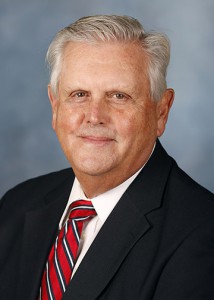
Education Commissioner Terry Holliday
During the regular session of the 2010 General Assembly, the school calendar issue was once again a major item for discussion. Due to the H1N1 virus, snow days, flood days and many other “disaster” impacts, superintendents once again were faced with difficult decisions about canceling school and scheduling makeup days.
The current two-year budget bill contains requirements for school calendars. The bill’s language says that the school term shall include, at a minimum, the equivalent of 177 six-hour instructional days, which is 1,062 instructional hours. But, it is very clear that the intent of the legislature, supported by the Kentucky Department of Education (KDE), is that school districts should include 177 six-hour instructional days in their 2010-11 calendars.
As commissioner of education, my primary focus is making certain our students have access to instruction that will ensure their success and their future. For that reason, I was very opposed to waiving instructional days or hours. However, having served as a local superintendent, I also know how difficult the development of a school calendar can be and how difficult it is to schedule makeup days.
KDE is piloting a new program to find solutions to the high number of instructional days missed over the last several years due to weather, illness and other disasters. The pilot program involves using virtual learning on the Internet to avoid losing instructional days to the reasons named above.
The pilot program will involve five to 10 districts from the eastern part of the state.
KDE will work with these districts to ensure that challenges like computer availability and Internet access in rural areas are addressed.
To be considered for the pilot program, a district must have missed an average of at least 20 days over the last three years and must have a plan in place to describe its strategies and ensure access to computers. Districts that are chosen for the pilot will receive funding to assist with the purchase of additional workstations and will receive support from KDE to ensure that there is full access to the Internet in the district.
KDE will begin working with the districts as soon as possible and will keep you updated through Kentucky Teacher on how the pilot is working in the schools.
Teacher and principal effectiveness
KDE is developing statewide instruments to measure teacher and principal effectiveness.
Why are we working on changes to the evaluation process? In my travels throughout the state, I hear from superintendents, principals and teachers that the current system of evaluation in Kentucky may not be as strong as we need, given the research showing the impact of teachers and principals on student learning. Also, the Race to the Top application, Title I reauthorization, federal grants and foundation grants all focus on effective teachers and principals. The vocabulary is changing from “highly qualified” to “effective.”
What is the timeline for the revisions? In the 2009-10 school year, we had four districts that worked to develop a process for measuring teacher effectiveness. This work was funded through our grant from the Wallace Foundation. Also, based on Wallace Foundation work, Kentucky has been one of the lead states in the nation for the development of principal effectiveness measures. We’ve had 23 districts volunteer to work with KDE during the 2010-11 school year and beyond to field test and pilot multiple means of effectiveness.
What are the components of teacher effectiveness? The research around this is mixed; however, there does seem to be agreement that a strong teacher effectiveness system must have multiple measures. In Kentucky, we are looking at student growth, teacher self-assessment, observations, 360-degree assessment, artifacts/evidences and student voice. For principals, there will be similar measures.
As this work progresses, I am eager to share it with you since the result of new teacher and principal effectiveness systems will be of great interest to this audience.
Race to the Top
As you know, Kentucky was not chosen for an award in the second round of Race to the Top (RTTT) funding. This is disheartening news for Kentucky. We believe that the state’s RTTT application was strong and focused on the best outcomes for students. Now KDE will begin to prioritize the items in our plan and look for alternate funding sources. This will slow our implementation and progress, but the RTTT plan is Kentucky’s blueprint for the future of P-12 education, so we won’t set it aside.
I look forward to continuing work with Gov. Steve Beshear, the Governor’s Transforming Education in Kentucky task force and the General Assembly to accomplish our strategic priorities for Kentucky’s students in the coming years.
I thank all of you for the hard work you perform daily on behalf of the students of this state. Your dedication to getting the work done and the high quality of your work is impressive and appreciated, especially given the cuts school districts have already taken in both budget and personnel positions due to the serious economic situation the state faces. I am honored to work with each of you and to be your commissioner.
(To comment on this topic, contact Commissioner Holliday at terry.holliday@education.ky.gov)



Leave A Comment